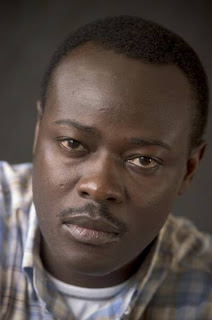
Coptic Christianity is a religion used in the
Coptic Orthodox Church of Alexandria, the largest Christian church in Egypt. Established by
Saint Mark the apostle and evangelist in the middle of the first century (approximately AD: 42). their congregation is being currently lead by
Pope Shenouda III. He leads and ministers to more than 95% of Egypt's Christians. This church has been alive for more than nineteen centuries.
The Coptic Orthodox Church of Alexandria is known considerably for its teachings and academic prowess. The most well known institution it works from is
The Catechetical School of Alexandria, founded by St. Mark himself, which is the oldest catechetical school in the world. Students their were graced with the brilliance of scholars such as Athenagoras, Clement, Didymus, and the native Egyptian
Origen, who was considered the father of theology and who was also active in the field of commentary and comparative Biblical studies. he wrote over 6,000 commentaries on the Bible in addition to his famous
Hexapla. Expanding pass the theological aspect of its teachings, the School of Alexandria also taught mathematics, science, and humanities. Wood carving was used as well to help engage the minds of the blind. Though not to stray to far, The Theological college of the catechetical school of Alexandria was re-established in 1893. This campus stretches to areas such as Cairo, New Jersey, ans Los Angeles. Missionary work was also apart of the church's growth and movement.
With such a large congregation base and with several brilliant minds working together, theological disputes were not to be factored out of the constant building to becoming a stronger church. as a result of these disputes, councils were made to oversee and advise certain aspects of the Coptic religion, as well as the different mindsets of each scholar. So throughout the course of expansion the Council of Nicea (AD 325),
Constantinople (AD 381),
Ephesus (AD 431), and Chalcedon (AD 451) was created to give a variant perspective of what was believed upon by each scholar who lead it. unfortunately, these changes wouldn't be the only ones.
By AD 639, there was a Muslim Conquest of Egypt, which lead to a large conversion amongst the Coptic Christians. By the 12th century, most Egyptians were indeed apart of the Islamic religion. However, The position of the Copts began to improve early in the 19th century under the stability and tolerance of Muhammad Ali's dynasty. The Coptic community ceased to be regarded by the state as an administrative unit and, by 1855, the main mark of Copts'

inferiority, the Jizya tax, was lifted. Shortly thereafter, Christians started to serve in the Egyptian army. The 1919 revolution in Egypt, the first grassroots display of Egyptian identity in centuries, stands as a witness to the homogeneity of Egypt's modern society with both its Muslim and Christian components.
Today, there are about 15 million Coptic Orthodox Christians in the world. 11 million in which abide in Egypt, other countries such as the U.S., Canada, Australia, Germany, and Sudan (known as the Diaspora make up roughly 4 million Coptic Orthodox Christians. There is also the 350,000 to 400,000 native Africans who live on the East side of the Continent, yet the are not considered Copts due to their ethnic background being other than Egyptian. There are also other churches such as the
Ethiopian Orthodox Tewahedo Church (roughly 45 million), and the
Eritrean Orthodox Tewahedo Church (roughly 2.5 million) who are treated as members of the Coptic Orthodox Church.
 As you can see by this photo to the left, I am still quite touched by the happenings in Africa involving the topic of Child Soldiers. When I did my previous blog I believed my normal guaranteed emotion was revealed in my writing, but in that case I felt a little more compelled to continue my thoughts, research, and ideas about this issue. (Click here to see some visual examples of the topic from a well known documentary.)
As you can see by this photo to the left, I am still quite touched by the happenings in Africa involving the topic of Child Soldiers. When I did my previous blog I believed my normal guaranteed emotion was revealed in my writing, but in that case I felt a little more compelled to continue my thoughts, research, and ideas about this issue. (Click here to see some visual examples of the topic from a well known documentary.)









































